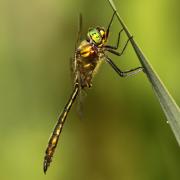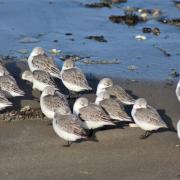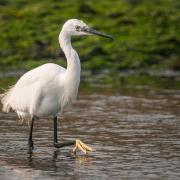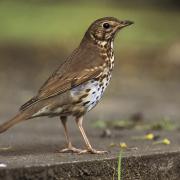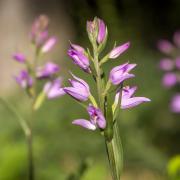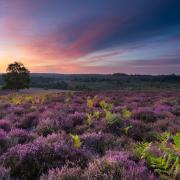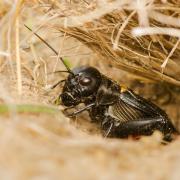Usually one of the UK’s feistiest birds, the wren’s attitude changes when the temperature drops...
Traditionally one of the coldest months of the year, February can often see temperatures reaching as low as minus 10°C. Such cold harsh weather can see a change in the habits of one of our smallest, yet feistiest birds, the wren. Although not the smallest British bird - this record sits with the goldcrest and firecrest, both of which weigh around 5g - wrens are almost as tiny, weighing in at 9 to 10g, similar to a £1 coin.
All three species spend the winter here in Hampshire, and with such small size comes the problem of retaining their body heat when the temperature reaches rock bottom. The secret to survival lies in combining body warmth.
During mild weather, wrens will defend a winter territory, protecting an area with enough food to get them through to spring. But when temperatures drop, aggressive behaviour stops, and birds come together to roost communally overnight. This is often in a nest box, or under the eaves of a house - though they will also seek out natural roosts such as cavities in trees.
Most birds enter the roost as the sun sets, and leave before dawn, so you may be totally unaware that it is happening in your garden. This is normally up to ten birds, but the record is an amazing 61 wrens in one nest box in Norfolk in the winter of 1969!
The decision to snuggle up with others is often made by the male whose territory includes the roost. He will call and make short flights to invite others to his roost. As winter comes to an end, he will try to restrict entry to just females, one of which may become his mate for the year.
For many bird enthusiasts, Valentine's Day signals that it's time to clear out old material from nest boxes, removing droppings and potential parasites in preparation for nesting birds in the coming months.
However, if it's particularly cold, it may be worth delaying this tidy up. The material could still be providing insulation for roosting birds.
February is also a great time to put up a nest box in your garden. Birds will be looking for nesting sites and preparing for the coming breeding season. Hampshire County Council's Countryside Service sometimes runs nest-box building sessions at its nature reserves and country parks, and sells ready-made nest boxes in some site shops. You can find details of our sites at our website address above.




